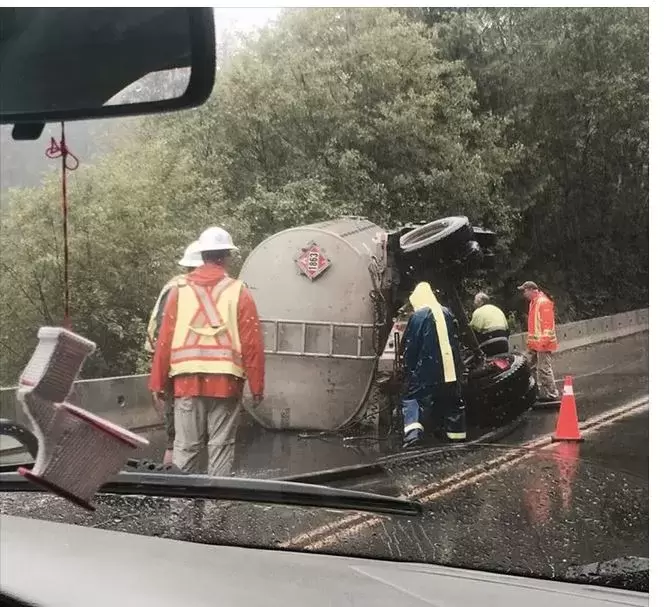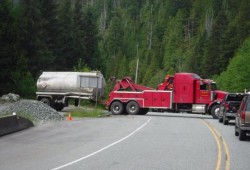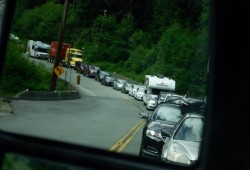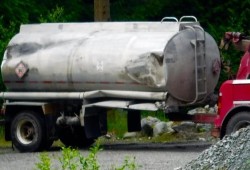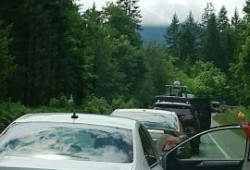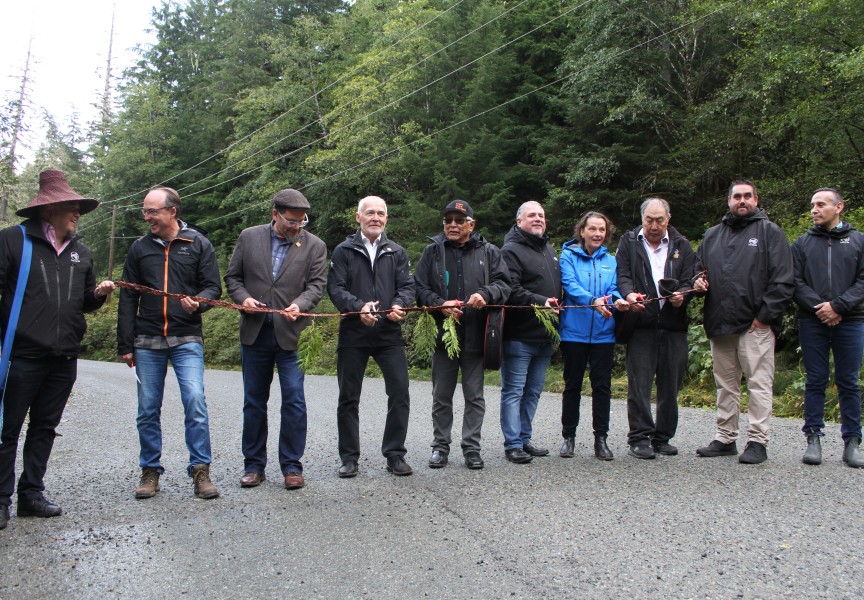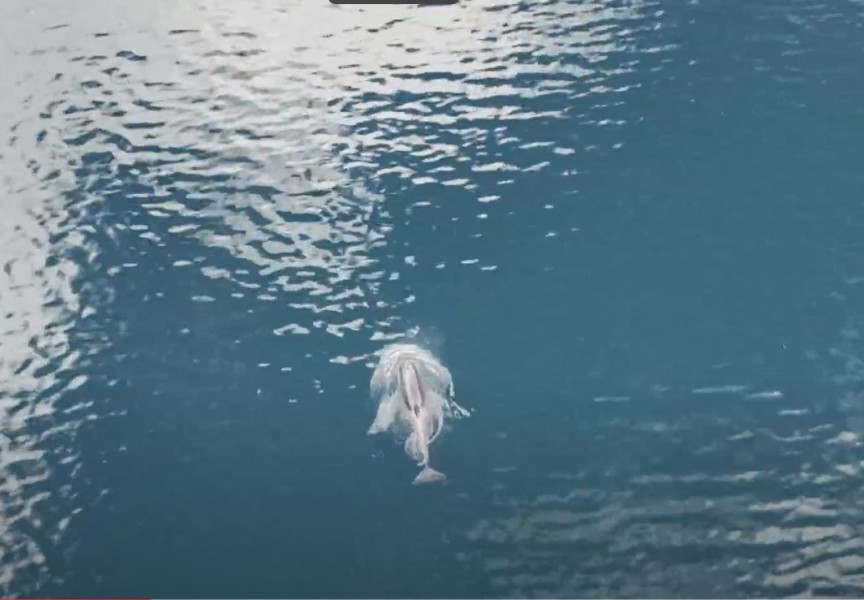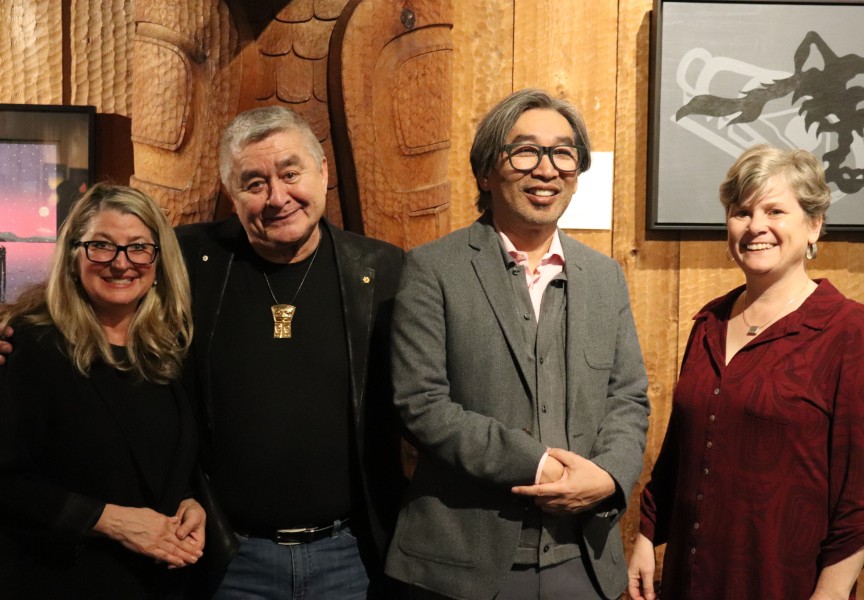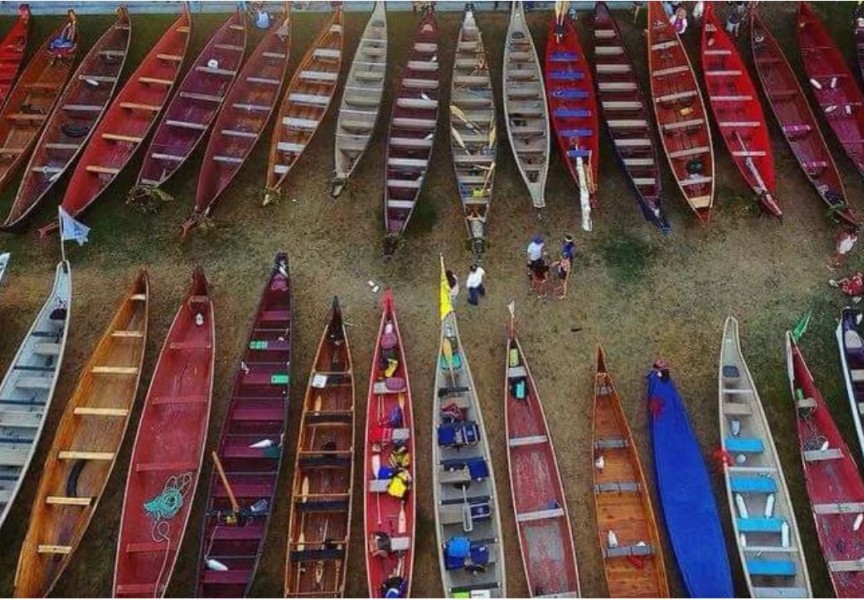A June 15 fuel truck accident that closed the Tofino Highway for 24 hours has Tla-o-qui-aht First Nation examining their environmental emergency response needs.
A tanker truck hauling Jet A (aviation) fuel overturned 33 kilometres east of Ucluelet in Tla-o-qui-aht traditional territory. The section of highway where the accident occurred is near a sharp curve that skirts along the edge of Kennedy Lake.
According to Saya Masso, Tla-o-qui-aht’s natural resource manager, a large portion of the connector highway between Port Alberni and the west coast lies within Tla-o-qui-aht territory and their Ha%ukmin Tribal Park.
“Ha%ukmin means feast bowl,” said Masso.
For generations Tla-o-qui-aht have relied on their Kennedy Lake watershed to provide fish, game, plant foods/medicines and clean water to sustain their people.
“Our vision is to restore it back to the abundance it once had so that our children can enjoy it in the future,” added Masso.
They have a guardian program with hired nation members to patrol and take care of Ha%ukmin Tribal Park and other sensitive areas.
So when the news that an estimated 3,000 litres of fuel spilled into Kennedy Lake reached their people, there was an attempt to go to the scene to assess the damage and help in any way they could. But emergency responders blocked access to the scene for several hours.
There were reports that the accident scene was filled with noxious fuel vapour. Those who were able to make it past the overturned truck before officials closed the highway reported smelling strong fumes.
According to Interior Health BC, exposure to Jet A fumes can irritate the eyes, lungs and gut and can cause headache and dizziness. Emergency responders to the accident were required to wear protective gear and respirators.
Several government agencies and first responders responded to the site including Emergency Management B.C., B.C. Ministry of Environment, B.C. Ministry of Transportation and Infrastructure, Port Alberni Fire Rescue, Ucluelet Volunteer Fire Brigade, RCMP, Canadian Air Crane, First Nations Health Authority, Vancouver Island Health Authority, Western Canada Marine Response Corporation (WCMRC), NUCOR Environmental Solutions Ltd, Heatherton Industrial and TerraWest Environmental Inc.
Tla-o-qui-aht staff does not have the training or equipment to respond to a hazardous materials incident such as this one, but Masso says it has sparked a renewed effort to get training and equipment closer to home.
“We have a mountainous highway and lots of hazardous materials are transported over it all the time,” said Masso, adding that this incident had TFN leadership looking at capacity development.
“We’ve started a dialogue with government for marine oil spill preparedness and response,” said Masso. He recalled the 1989 Exxon Valdez disaster – the fuel tanker that ran aground and spilled 10.8 million gallons of crude oil into Prince William Sound in Alaska, affecting 21,000 kilometres of shoreline, including the beaches of Clayoquot Sound.
Nuu-chah-nulth people were involved in the clean-up, carrying pails and scraping up oil soaked sand, dead sea birds and marine mammals.
“I am happy to say we are organizing the training of our guardians so that they can respond to marine oil spills,” said Masso, adding that TFN has partnered with the Central Westcoast Forest Society and other nations in the area.
He hopes they can create a similar response team for the highway. “There are delays in the current system,” said Masso, adding that a key government responder had to come from the mainland to the island by ferry and didn’t arrive until the next day.
“We would like to take the lead in training, emergency response and capacity development,” said Masso.
Their guardian staff works with the TFN Salmon Enhancement Program. They get their salmon eggs from lower Kennedy Lake, rear them then release them in upper Kennedy Lake.
Ha%ukmin Guardians have, in the past, monitored construction sites along the highway and during the construction of a marina, ensuring impacts to their tribal park is minimized.
“We acquire the skills and equipment over time; the program is evolving and is being enhanced over time,” said Masso.
According to the Ministry of Air, & Water, the party responsible for the accident is legally required to clean-up or manage the clean-up of a spill.
TerraWest, an environmental consultant based out of Nanaimo, was hired by the spiller for the clean-up of the accident site. They have conducted soil and surface water samples and report there was minimal surface sheen observed on the lake at the time of their visit. The boom in the water at the incident site continues to be monitored and maintained.
TerraWest states the site is stable and not currently an imminent risk to the environment.

